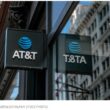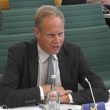800 MHz rebanding progress continues
About 55% of all non-border 800 MHz public-safety licensees have completed their physical rebanding work, and less than 10% have failed to sign a reconfiguration agreement with Sprint Nextel, the commercial wireless carrier said last week in a report to the FCC.
In its report submitted five years after the rebanding effort was started, Sprint Nextel stated that 505 of the approximately 900 non-border NPSPAC licensees have completed are operating their 800 MHz system on their new frequencies. Of this same group, 826 have signed rebanding agreements with Sprint Nextel. Of the non-border licensees that have not signed a rebanding agreement, “most, but not all” have submitted cost estimates to Sprint Nextel, so negotiations between the parties can occur.
Separately, the FCC last week approved an order granting a six-month extension to the “true-up” process designed to finalize accounting between Sprint Nextel and the FCC. In the order, the FCC noted that Sprint Nextel still has to pay considerable rebanding expenses, making it impossible for the agency to determine whether the carrier will need to make an additional payment to the U.S. government in return for the 1.9 GHz spectrum received as part of the original 2004 rebanding order.
Originally, the true-up process was supposed to happen six months after rebanding was scheduled for completion in 2008. Since then, the FCC has granted six-month extensions, and “it would be reasonable to expect that we’ll follow the same process” in the future, until rebanding nears completion, FCC spokesman Rob Kenny said.
In addition to waiting on the 45% of non-border licensees to complete rebanding, Sprint Nextel reported almost two-thirds of the licensees on the U.S.–Canada border — where rebanding only began last year — still need to sign rebanding agreements. Meanwhile, all parties are waiting on the U.S. and Mexico to sign an 800 MHz treaty that will allow 800 MHz licensees on the southern border to begin the rebanding process.
In its annual reports the past several years, Sprint Nextel has expressed confidence that it will not have to make an additional payment to the U.S. government.

















